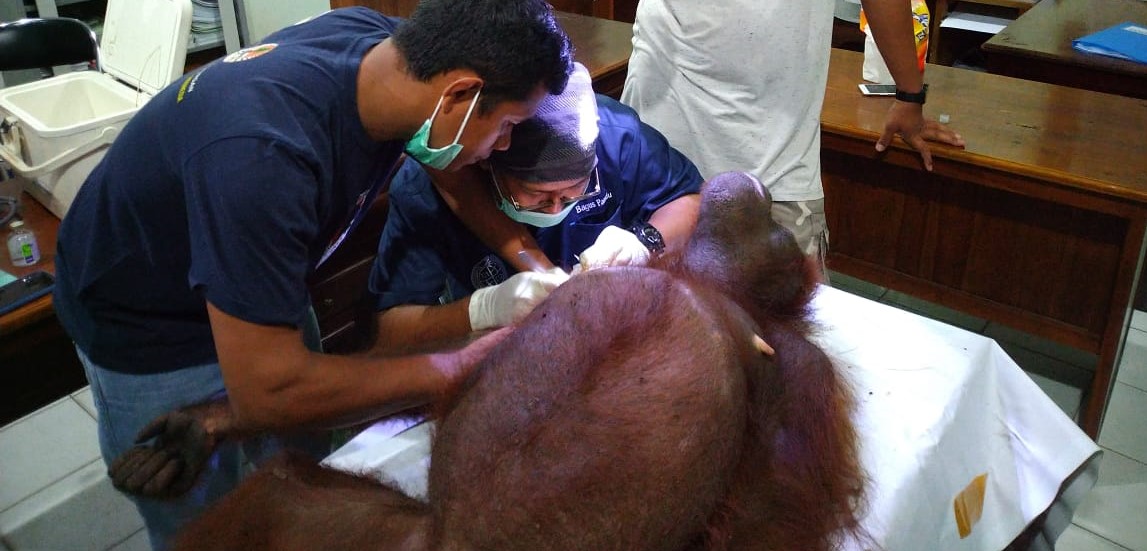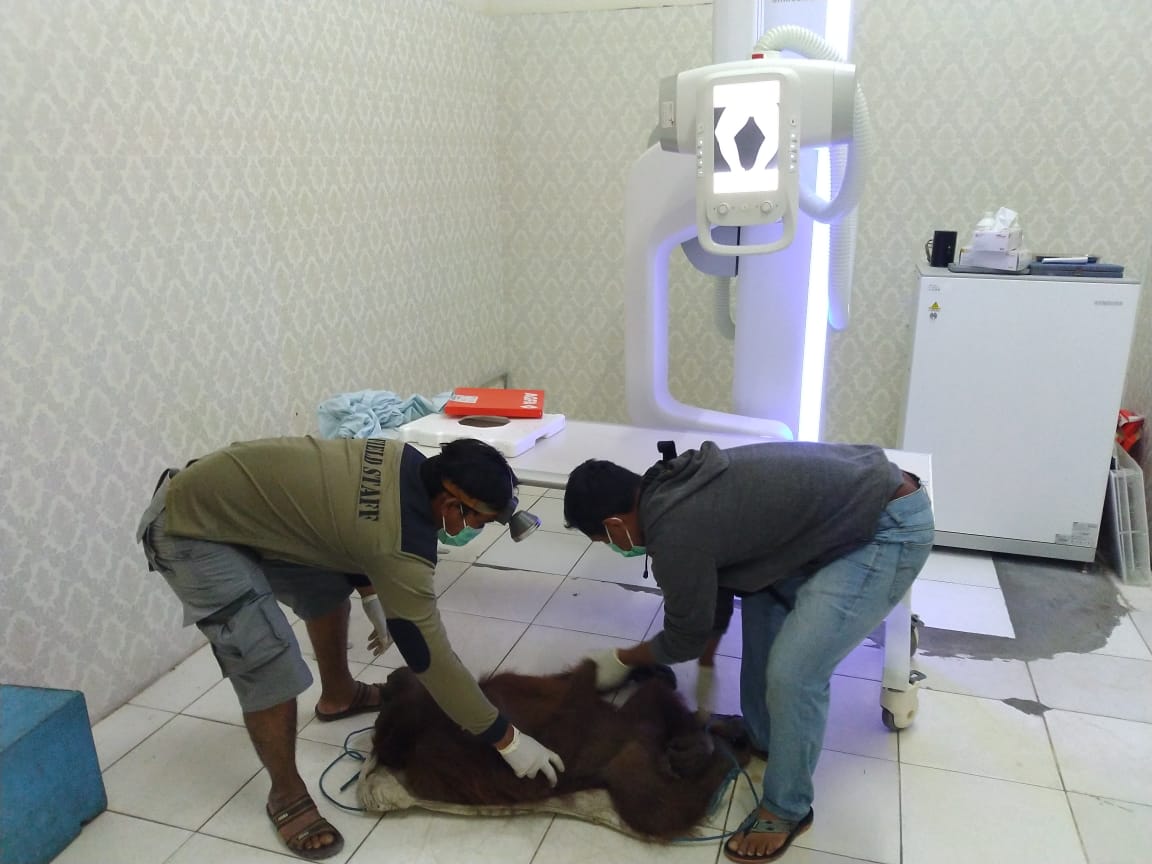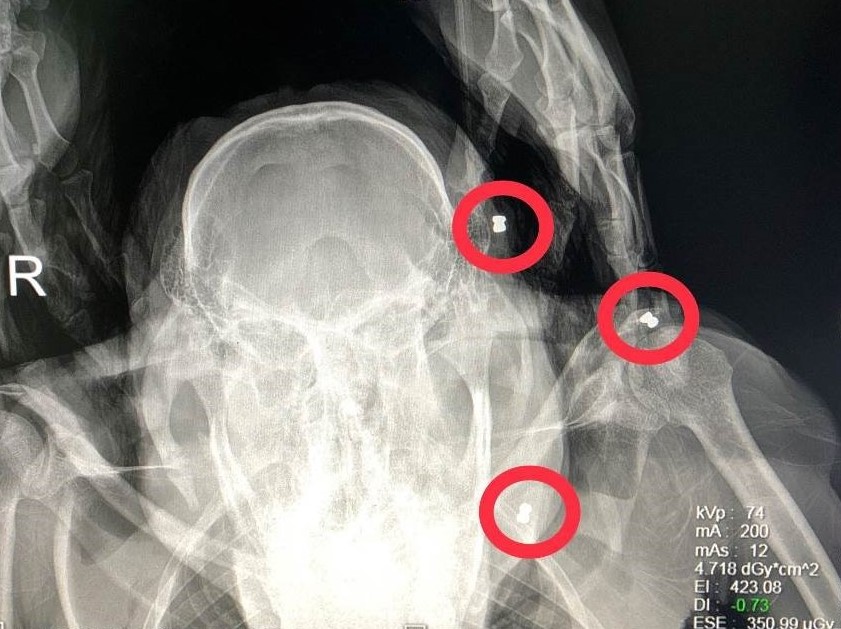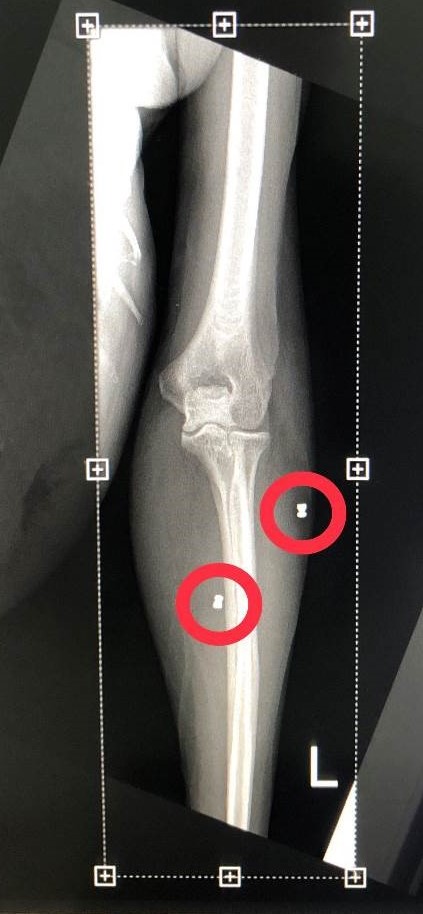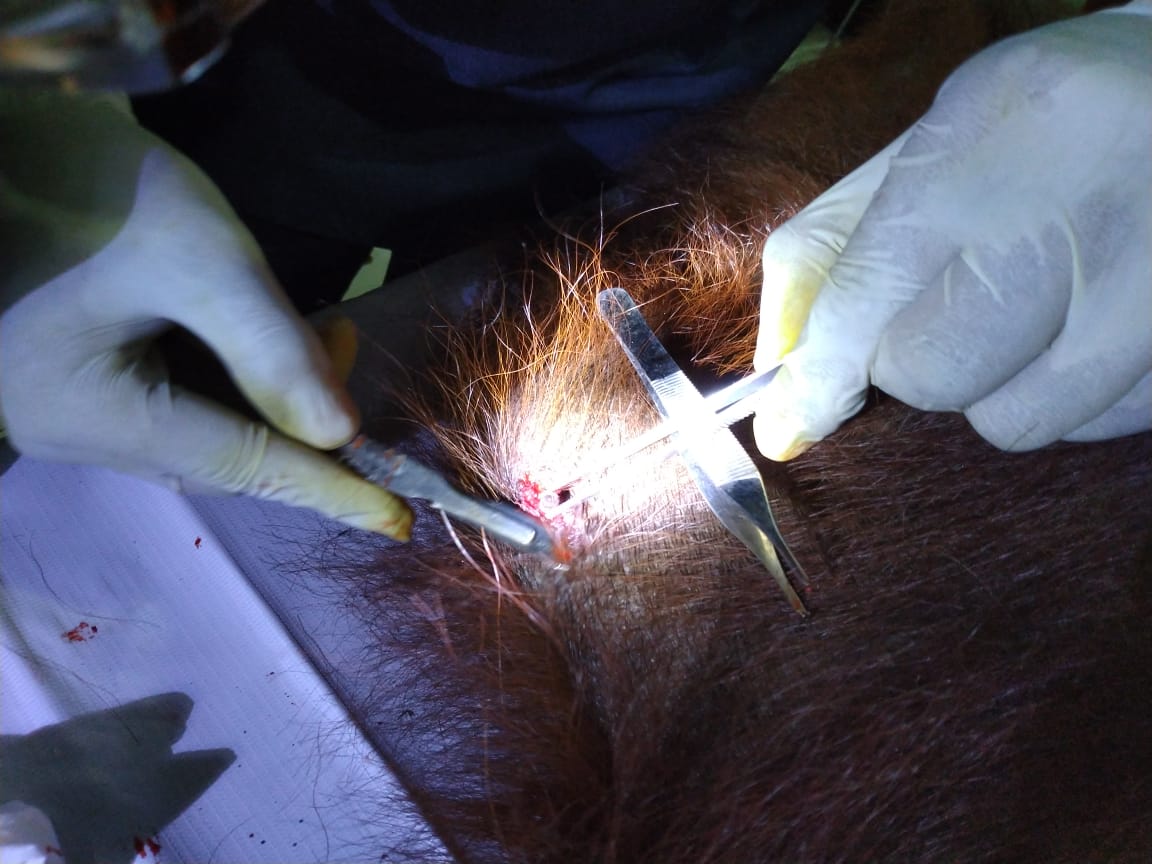While people around the world celebrated the red ape this week, our team have had a busy few days spent rescuing orangutans in need. To go behind the scenes and understand some of the challenges still facing orangutans, our team in the field have put together a timeline of our most recent orangutan rescue:
Friday morning- It was reported to government officers this week that an orangutan had been spotted within a community oil palm plantation in Central Kalimantan, Indonesian Borneo. Once the location had been determined, our orangutan rescue team were then called upon to assist.
Friday 11:45am - On arrival, a female orangutan was observed with an infant in an isolated copse of trees, entirely surrounded by oil palm plantation. With the dimensions of this tiny patch of fragmented forest being a mere 10x20 metre area, and any suitable nearby forest considered too far away for the pair to travel, a decision was made to rescue them from this remote island of trees for their safety. In practice however, the strong winds and height of the trees made tranquilising the female a very difficult task, and it wasn’t until several hours later that the pair were finally safely brought down from the canopy.
Friday 6pm - With the light beginning to fade, and the female orangutan under sedation, it was the role of the veterinary team to perform a quick physical examination to check the health of the pair. Under initial inspection, it was observed that they were in relatively good health except the mother had several air rifle pellets embedded in her skin, and therefore required further attention. As the night drew closer, the pair were then carefully transported to a temporary facility for them to rest.
Sunday evening - In honour of Indonesian Independence Day on the Friday, the 16-year-old female orangutan had been called Augustine, and her young, who had been identified as a 2 or 3-year-old male, named Augusta. They had both rested and recuperated from their rescue, and now our team were required to act fast to try and observe the number and severity of Augustine’s gun pellet injuries.
Sunday 9pm - In order to monitor the number and location of the bullets in Augustine’s skin, she was taken along with Augusta to a nearby public hospital so that she could be X-rayed. After being safely anesthetised, she was found to have 7 air rifle pellets lodged in her skin.
Sunday 10:15pm - It was at this point that our veterinary team, alongside government officials, began the minor surgical procedure of removing as many bullets as possible from Augustine. The delicate operation was able to remove 5 of the pellets, with a further 2 too deeply embedded into her tissue to be able to safely extract. Fortunately, Augustine appeared to come out of the hour and 15 minute procedure in good health.
Monday 2pm - As the previous evening’s medical procedure had run so smoothly, the following day after a final check-up from our team, Augustine and Augusta were given the all clear to be released back into the wild. A safe area within the Lamandau Wildlife Reserve was selected as an ideal relocation site as this region is protected by Orangutan Foundation guard posts, and after a short boat ride, the pair were happily released into the forest. Once their transport cage was opened, our team were able to catch a quick glimpse of the orangutans before climbing into the nearby trees.
It’s encouraging to know that Augustine and Augusta will now be able to thrive in their new protected habitat. However, witnessing these orangutans initially stranded in the last remaining forest due to habitat loss, shows hows orangutans remain under threat and that the work of the Orangutan Foundation is still needed.
To find out how you can become a Guardian of Lamandau and protect Augustine and Augusta’s new home, please explore our website.





